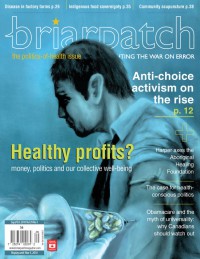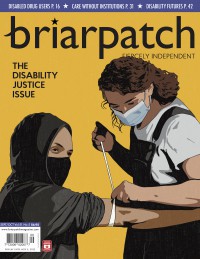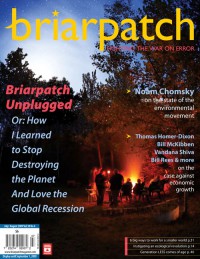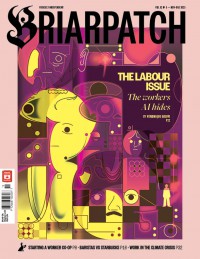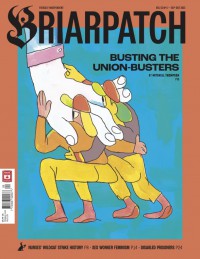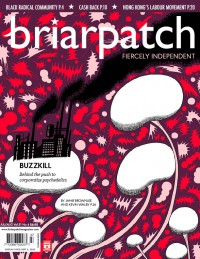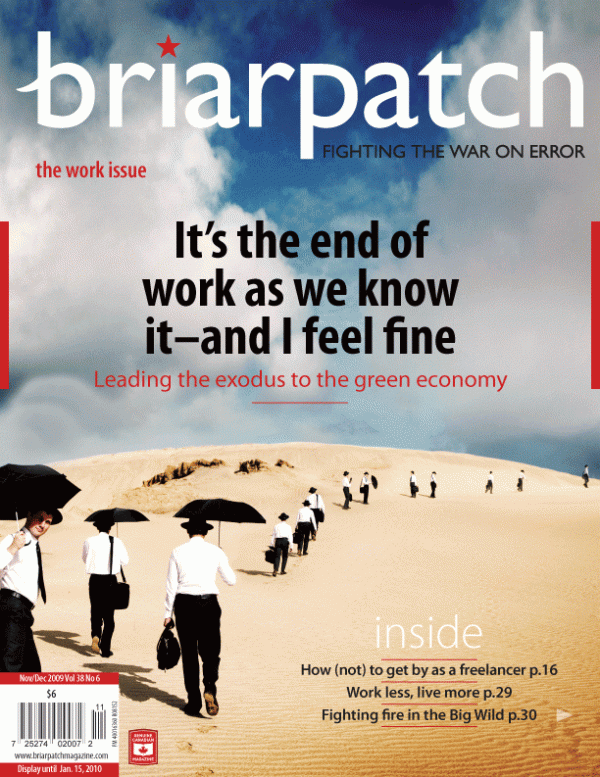
Work and the green economy
The economic crisis has taken a grim toll on working people and on the labour movement. In its wake, can labour activists and environmentalists join forces to build a green economy that works for everyone? This is just one of the many questions we set out to answer in our annual labour issue, which also brings you a report on the sorry state of freelance journalism, an assessment of the prospects for union organizing in tough times, and more.
-
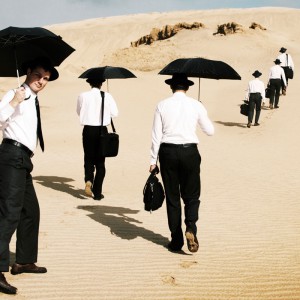 Magazine
MagazineTeamsters and turtles
Turtles and teamsters, together at last. Ten years after the anti-globalization movement shut down the World Trade Organization negotiations, that slogan, and the vision it embodied of trade unionists and environmentalists joining forces to halt neoliberal globalization in its tracks, continues to inspire activists in both camps.
-
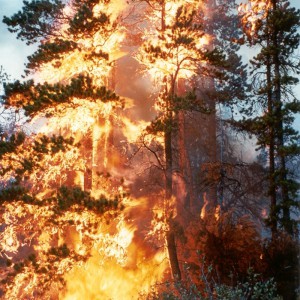 Magazine
MagazineDays of smoke and roses
Every year from May until August, initial attack crews are deployed from Canadian district fire bases to help contain fires (and occasionally conduct prescribed burns) in Canada’s boreal forest. Like intelligence operatives, fire rangers often work in isolation and obscurity, in a remote and dangerous world hidden from public view. Welcome to the Big Wild.
-
 Magazine
MagazineWill write for food
It’s an unremarkable Tuesday evening in mid-October and I’ve just entered a second-floor meeting room at the Northern District Library in downtown Toronto. I’m feeling optimistic.
-
 Magazine
MagazineWomen fight for a minimum wage
Lin Shiu, 65, walks into the small Hong Kong Women Workers’ Association office, still sweating from her morning shift. Wearing a blue suit, baseball cap and fluorescent green mesh vest, she gratefully accepts a glass of water. In an hour, she must get back to work cleaning a luxurious Hong Kong mall.
-
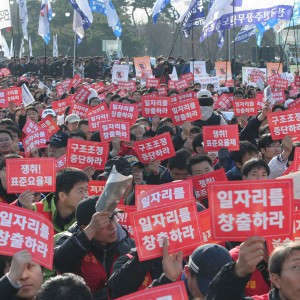 Magazine
MagazineTwo-tier workforce
South Korea’s export-led economy has been hard hit by the global economic crisis, and the country’s migrant workforce has made a particularly easy target for politicians looking for scapegoats. South Korea has historically been ethnically homogeneous and has had a tepid relationship with outsiders even in prosperous times; during times of hardship, these workers face even greater scrutiny and discrimination.
-
 Magazine
MagazineSaints or scabs?
It’s not easy getting a cab to the Lower Ninth Ward. Even now, with most of the former population cleared out, some drivers still won’t cross the Claiborne Avenue Bridge unless it’s to take a carload of tourists to gawk at Hurricane Katrina’s Ground Zero. So when the third cab stops, it’s with some impatience that I ask if he knows the way.
-
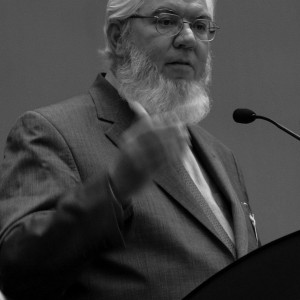 Magazine
MagazineGovernment and the global jobs crisis
Various talking heads have proclaimed that the worst of the global recession may be over, but the Organisation for Economic Co-operation and Development (OECD) maintains that “employment is the bottom line of the current crisis,” which has the potential to turn “into a long-term unemployment crisis.”
-
 Magazine
MagazineWork less, live more
Work is a blessing and a curse. At its best, work gives our lives meaning and purpose. Many of us derive our self-identity from our work. More than just a means to an income, work can provide an opportunity to contribute, interact and connect with others.
-
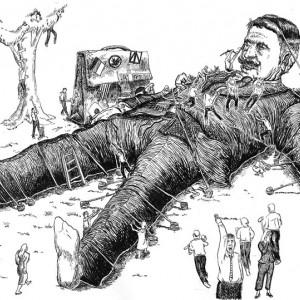 Magazine
MagazineCutting the global economy down to size
For over a century, we’ve thought of work as the use of human labour and technology to transform natural resources into tradeable goods. This economic model has brought us unparalleled prosperity – and exhausted the planet’s capacity to support us.
-
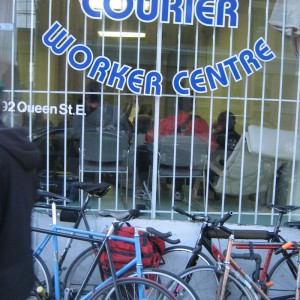 Magazine
MagazineOrganizing in tough times
Being a bike courier was the first job Mark Hayward had that he not only liked, but loved. But times are tough: if he were offered a better job tomorrow, he’d be gone. “For the first time ever, work was so slow, couriers were complaining they didn’t have enough money for food,” says Hayward.
-
 Magazine
MagazineThe coming austerity
With the Financial Times lamenting the “end of the era of liberalization” and the “death of global free-market capitalism” and Newsweek declaring “we are all Socialists now,” one could be forgiven for believing that the worst excesses of neoliberalism have been relegated to the dustbin of history.


